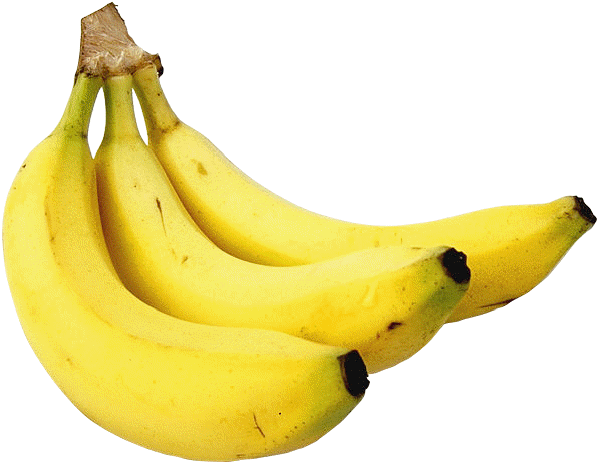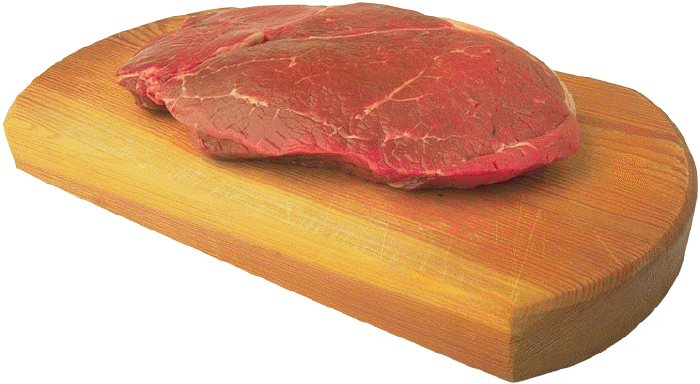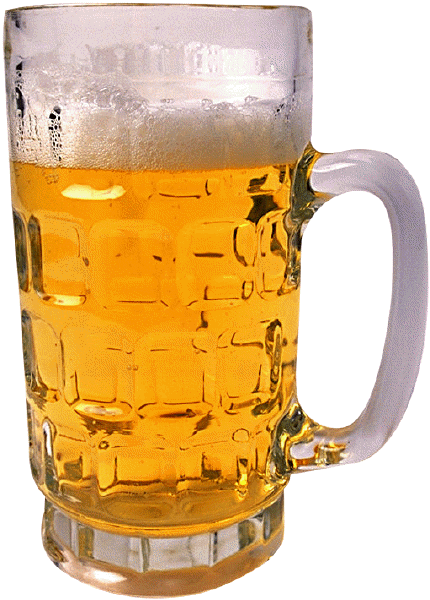- [Healing With Vitamins, By the Editors of "Prevention"]
The book "Healing With Vitamins," By the Editors of "Prevention" indicates that in alternative therapy cancer treatment programs doctors have prescribed high doses of cancer-specific nutrients beyond a base of full-supplementation. Those higher add-on doses are as follows:
- Vitamin C 2,000 - 12,000 mg (in a buffered form, dosage spread throughout the day at hourly intervals)
- Vitamin E 400-800 IU (d-alpha tocopherol form, NOT dl-alpha tocopherol)
- Beta-carotene 100,000 IU
- Selenium 800 mcg (l-selenomethionine form)
- EFA's 2,400 mg
- CoEnzyme Q10 200 mg
- Arginine 2,000 - 12,000 mg
- Glutamine 1,000 - 5,000 mg
- Other nutrients not included above, but that should be included in an alternative cancer treatment protocol are: Grape seed extract, N-Acetylcysteine, Bioflavonoids, and Superoxide dismutase (SOD)(Note: SOD destroys free radicals. Consider injections - under a doctor's supervision)
- CHANGE YOUR DIET: Up to one-third of the 563,100 cancer deaths in 1999 were related to nutrition and could have been prevented. If you don't use tobacco, then diet and exercise can reduce your risk of getting cancer.
 EAT A DIET HIGH IN PLANT FOOD: Eat five or more servings of fruits and vegetables each day, and eat other foods from plant sources, such as breads, cereals, grain products, rice, pasta, or beans several times each day. Scientific studies show that eating fruits and vegetables protect for cancers at many sites, particularly for cancers of the gastrointestinal and respiratory tracts. Grains are an important source of many vitamins and minerals such as folate, calcium, and selenium, all of which have been associated with a lower risk of colon cancer. Beans (legumes) are especially rich in nutrients that may protect against cancer. EAT A DIET HIGH IN PLANT FOOD: Eat five or more servings of fruits and vegetables each day, and eat other foods from plant sources, such as breads, cereals, grain products, rice, pasta, or beans several times each day. Scientific studies show that eating fruits and vegetables protect for cancers at many sites, particularly for cancers of the gastrointestinal and respiratory tracts. Grains are an important source of many vitamins and minerals such as folate, calcium, and selenium, all of which have been associated with a lower risk of colon cancer. Beans (legumes) are especially rich in nutrients that may protect against cancer.
- EAT GARLIC: A study at Pennsylvania State University found that garlic inhibits breast cancer cell formation. Iowa researchers found that women who ate garlic at least once a week reduced their risk of colon cancer by one third.
- HAVE A SOYBURGER: Soy can protect against prostate cancer and may help prevent breast cancer.
- EAT FIBER: Fiber bulks up the stool, increases acidity and reduces the concentration of potential cancer-causing agents. Fiber portects against colon cancer and hormone-related cancers like prostate and breast cancer.
- WATCH THE SWEETS: Too much sugar can increase your risk of cancer.
 LIMIT YOUR INTAKE OF HIGH-FAT FOODS, ESPECIALLY THOSE FROM ANIMAL SOURCES: Choose foods low in fat, and limit your consumption of meats, especially high-fat meats. High-fat diets have been associated with an increase in the risk of cancers of the colon and rectum, prostate, and endometrium. Do not eat cooked sasuages, cured pork, deviled ham, meat spreads, dried beef, beef jerky, hot dogs, luchmeats, and smoked fish. These foods are all high in nitrates which break down into cancer-causing nitrosamines in the body. Consumption of meat, especially red meat, has been associated with increased cancer risk at several sites, most notably colon and prostate. One example, according to researchers at Harvard women could halve their risk of colon cancer by eating red meat only once a month and eating fish and chicken on other days. LIMIT YOUR INTAKE OF HIGH-FAT FOODS, ESPECIALLY THOSE FROM ANIMAL SOURCES: Choose foods low in fat, and limit your consumption of meats, especially high-fat meats. High-fat diets have been associated with an increase in the risk of cancers of the colon and rectum, prostate, and endometrium. Do not eat cooked sasuages, cured pork, deviled ham, meat spreads, dried beef, beef jerky, hot dogs, luchmeats, and smoked fish. These foods are all high in nitrates which break down into cancer-causing nitrosamines in the body. Consumption of meat, especially red meat, has been associated with increased cancer risk at several sites, most notably colon and prostate. One example, according to researchers at Harvard women could halve their risk of colon cancer by eating red meat only once a month and eating fish and chicken on other days.

Lifestyle Changes
DON'T SMOKE OR DRINK: All cancers caused by cigarette smoking and heavy use of alcohol could be prevented completely. The American Cancer Society estimates that in 1999 about 173,000 cancer deaths were caused by tobacco use. An additional 20,000 cancer deaths were related to excessive alcohol use, frequently in combination with tobacco use. Limit consumption of alcoholic beverages, if you drink at all.
 Alcoholic beverages, along with cigarette smoking and use of snuff and chewing tobacco, cause cancers of the oral cavity, esophagus, and larynx. The combined use of tobacco and alcohol leads to a greatly increased risk of oral and esophageal cancers; the effect of tobacco and alcohol combined is greater than the sum of their individual effects. Studies also have noted an association between alcohol consumption and an increased risk of breast cancer. The mechanism of this effect is not yet known, but the association may be due to carcinogenic actions of alcohol or its metabolites, to alcohol-induced changes in levels of hormones such as estrogens, or to some other process. Alcoholic beverages, along with cigarette smoking and use of snuff and chewing tobacco, cause cancers of the oral cavity, esophagus, and larynx. The combined use of tobacco and alcohol leads to a greatly increased risk of oral and esophageal cancers; the effect of tobacco and alcohol combined is greater than the sum of their individual effects. Studies also have noted an association between alcohol consumption and an increased risk of breast cancer. The mechanism of this effect is not yet known, but the association may be due to carcinogenic actions of alcohol or its metabolites, to alcohol-induced changes in levels of hormones such as estrogens, or to some other process.
- AVOID CHEMICALS: Avoid using hair sprays, cleaning compounds, fresh paints, garden pesticides, and products in aerosol cans. Chemicals increase the risk of cancer by promoting the formation of free radicals, and chemicals can weaken the immune system of those who already have cancer.
- AVOID STRESS: When you can't avoid stress learn and use relaxation and stress management techniques to deal with it.
- AVOID EXPOSURE TO THE SUN: Many of the more than 1 million skin cancers that were diagnosed in 1999 could have been prevented by protection from the sun's rays.
- SCHEDULE REGULAR SCREENING EXAMINATIONS BY A HEALTH CARE PROFESSIONAL: A qualified professional can catch developing problems in their early stages.
- GIVE YOURSELF SELF EXAMINATIONS: Self examinations for cancers of the breast and skin may help you detect tumors in their early stages.
 ACHEIVE AND MAINTAIN A HEALTHY WEIGHT: Too many calories and too little exercise can lead to overweight, obesity, and increased risk for cancers at several sites. Obese men are more likely to develop colon and rectal cancer, while overweight women are more likely to develop gallbladder, cervical, uterine, and breast cancer. Both exercise and controlled caloric intake are necessary to achieve or maintain a healthy body weight. ACHEIVE AND MAINTAIN A HEALTHY WEIGHT: Too many calories and too little exercise can lead to overweight, obesity, and increased risk for cancers at several sites. Obese men are more likely to develop colon and rectal cancer, while overweight women are more likely to develop gallbladder, cervical, uterine, and breast cancer. Both exercise and controlled caloric intake are necessary to achieve or maintain a healthy body weight.
- EXERCISE: Physical activity can help protect against some cancers, either by balancing caloric intake with energy expenditure or by other mechanisms.

Medical Options and Precautions
CHEMOTHERAPY: Use of drugs that kill cancer cells throughout the body.
SURGERY: Removal of the tumor or of the diseased organ.
RADIATION THERAPY: Use of high-energy rays to kill cancer cells. Radiation may come from outside the body (external radiation therapy) or from putting materials that contain radiation directly into the body (internal radiation therapy).
HORMONE THERAPY: Used to boost the immune system.
CRYOTHERAPY: The destruction of diseased cells by extreme cold.
ELECTRODESSICATION: The destruction of diseased tissue destruction by heat.
LASER THERAPY: Using lasers to destroy diseased tissue.
That converts to:
Loss of appetitie, nausea, intestinal absorption problems and increased metabolism which result in malnutrition and weight loss.
Along with destroying cancerous cells, chemotherapy affects healthy cells resulting in damage to bone marrow, the intestinal lining, hair follicles (causing balding), and the mouth, and sometimes causing severe side effects. Bacteria and cancerous cells can also adapt to chemotherapy making the use of various antibiotics necessary.

|
 Knowledge gives a person many options for managing cancer and
they can then personally take charge of the effect this disease is having on their life.
Knowledge gives a person many options for managing cancer and
they can then personally take charge of the effect this disease is having on their life. EAT A DIET HIGH IN PLANT FOOD: Eat five or more servings of fruits and vegetables each day, and eat other foods from plant sources, such as breads, cereals, grain products, rice, pasta, or beans several times each day. Scientific studies show that eating fruits and vegetables protect for cancers at many sites, particularly for cancers of the gastrointestinal and respiratory tracts. Grains are an important source of many vitamins and minerals such as folate, calcium, and selenium, all of which have been associated with a lower risk of colon cancer. Beans (legumes) are especially rich in nutrients that may protect against cancer.
EAT A DIET HIGH IN PLANT FOOD: Eat five or more servings of fruits and vegetables each day, and eat other foods from plant sources, such as breads, cereals, grain products, rice, pasta, or beans several times each day. Scientific studies show that eating fruits and vegetables protect for cancers at many sites, particularly for cancers of the gastrointestinal and respiratory tracts. Grains are an important source of many vitamins and minerals such as folate, calcium, and selenium, all of which have been associated with a lower risk of colon cancer. Beans (legumes) are especially rich in nutrients that may protect against cancer.
 LIMIT YOUR INTAKE OF HIGH-FAT FOODS, ESPECIALLY THOSE FROM ANIMAL SOURCES: Choose foods low in fat, and limit your consumption of meats, especially high-fat meats. High-fat diets have been associated with an increase in the risk of cancers of the colon and rectum, prostate, and endometrium. Do not eat cooked sasuages, cured pork, deviled ham, meat spreads, dried beef, beef jerky, hot dogs, luchmeats, and smoked fish. These foods are all high in nitrates which break down into cancer-causing nitrosamines in the body. Consumption of meat, especially red meat, has been associated with increased cancer risk at several sites, most notably colon and prostate. One example, according to researchers at Harvard women could halve their risk of colon cancer by eating red meat only once a month and eating fish and chicken on other days.
LIMIT YOUR INTAKE OF HIGH-FAT FOODS, ESPECIALLY THOSE FROM ANIMAL SOURCES: Choose foods low in fat, and limit your consumption of meats, especially high-fat meats. High-fat diets have been associated with an increase in the risk of cancers of the colon and rectum, prostate, and endometrium. Do not eat cooked sasuages, cured pork, deviled ham, meat spreads, dried beef, beef jerky, hot dogs, luchmeats, and smoked fish. These foods are all high in nitrates which break down into cancer-causing nitrosamines in the body. Consumption of meat, especially red meat, has been associated with increased cancer risk at several sites, most notably colon and prostate. One example, according to researchers at Harvard women could halve their risk of colon cancer by eating red meat only once a month and eating fish and chicken on other days.
 Alcoholic beverages, along with cigarette smoking and use of snuff and chewing tobacco, cause cancers of the oral cavity, esophagus, and larynx. The combined use of tobacco and alcohol leads to a greatly increased risk of oral and esophageal cancers; the effect of tobacco and alcohol combined is greater than the sum of their individual effects. Studies also have noted an association between alcohol consumption and an increased risk of breast cancer. The mechanism of this effect is not yet known, but the association may be due to carcinogenic actions of alcohol or its metabolites, to alcohol-induced changes in levels of hormones such as estrogens, or to some other process.
Alcoholic beverages, along with cigarette smoking and use of snuff and chewing tobacco, cause cancers of the oral cavity, esophagus, and larynx. The combined use of tobacco and alcohol leads to a greatly increased risk of oral and esophageal cancers; the effect of tobacco and alcohol combined is greater than the sum of their individual effects. Studies also have noted an association between alcohol consumption and an increased risk of breast cancer. The mechanism of this effect is not yet known, but the association may be due to carcinogenic actions of alcohol or its metabolites, to alcohol-induced changes in levels of hormones such as estrogens, or to some other process.  ACHEIVE AND MAINTAIN A HEALTHY WEIGHT: Too many calories and too little exercise can lead to overweight, obesity, and increased risk for cancers at several sites. Obese men are more likely to develop colon and rectal cancer, while overweight women are more likely to develop gallbladder, cervical, uterine, and breast cancer. Both exercise and controlled caloric intake are necessary to achieve or maintain a healthy body weight.
ACHEIVE AND MAINTAIN A HEALTHY WEIGHT: Too many calories and too little exercise can lead to overweight, obesity, and increased risk for cancers at several sites. Obese men are more likely to develop colon and rectal cancer, while overweight women are more likely to develop gallbladder, cervical, uterine, and breast cancer. Both exercise and controlled caloric intake are necessary to achieve or maintain a healthy body weight.